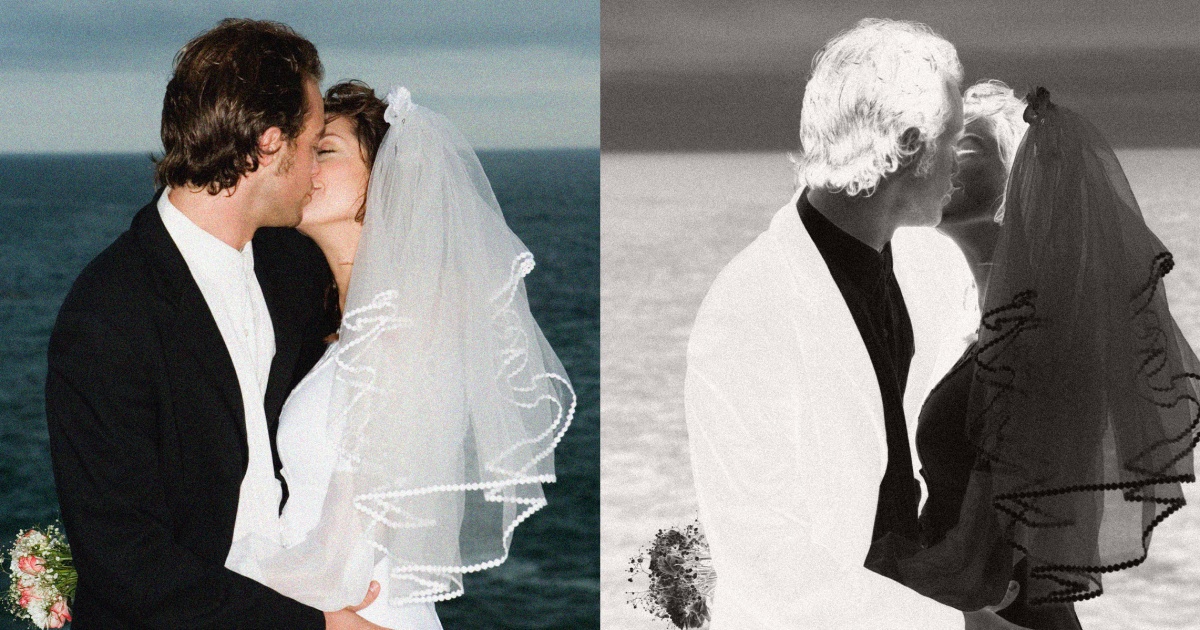A viral essay about marriage spawned thousands of hate clicks — and exposed a harsh reality

United States
Breaking News:
Washington DC
Friday, May 17, 2024


Marriage is having a moment in American discourse. TikTok videos extol the virtues of being a stay-at-home wife and mother who also feeds chickens, makes sourdough bread and has five children.
Magazines and newspapers are filled with articles and columns exhorting people to just suck it up and marry. Or even offer up marriage as the solution to the inequality in our nation. And these stories are focused on women, because it’s young women who are more likely to opt out of marriage and it’s older women who are divorcing their husbands.
The “just get married” discourse feels like a tightening rope around women who are already seeing their rights reversed through the rollback of Roe.
Recently, an essay published in New York Magazine’s The Cut even argued for marriage as a feminist reclamation. Marriage, as the author described it, is a protectorate, wherein she is taken care of and pampered. It truly sounds nice given the level of exhaustion American women are experiencing, after carrying the weight of cognitive and domestic labor, and doing the work of the social safety net. But it’s worth pointing out that gilded cages are still cages.
The “just get married” discourse feels like a tightening rope around women who are already seeing their rights reversed through the rollback of Roe. Women who saw the vast lack of a social safety net during the pandemic and saw America take back whatever advances we made that helped families, while rolling out the war machine. Women are dying because we don’t have choices. Still, the answer that is shouted back at us is “just marry.”
But marriage has never been a safe space for women. And any argument that marriage provides comfort and equality under the benevolent protectorship of a husband isn’t borne out by the history of marriage — or the reality of it.
Even now, with all of its supposed advantages, marriage can be a trap for women, who are more likely than men to experience physical and emotional abuse in marriage. And nearly 20% of marriages involve violence. In 2021, 34% of female murder victims were killed by their intimate partner, compared to only 6% of male murder victims.
Marriage as an institution has been more about keeping some people out and locking others in. Founded on the laws of coverture, historically in marriage a woman’s identity was subsumed under her husband. But, of course, this relative safety of the marital relationship was only afforded to wealthy women. Poor people, the enslaved, queer or disabled people have been historically excluded from the benefits of marriage. Enslaved women, often forced into marriage, only kept those relationships at the whims of their enslavers, and were subject to sexual and racial violence as a result. Today, mass incarceration that targets Black men makes keeping a marriage together harder. Additionally, staying together as a family becomes difficult when the child welfare system targets Black families. And for centuries, until 1967, when the Loving v. Virginia Supreme Court ruling legalized interracial marriage, marriage was a means of policing racial purity. Also, it wasn’t until 2014, when the Supreme Court ruled in Obergefell v. Hodges, that gay marriage was made equal in the United States. People who are disabled were excluded from marriage because historically they were often institutionalized. Today, people who are disabled are often barred from the institution of marriage because they can lose access to life-saving benefits.
And you don’t have to look too far back in American history to see how wives were viewed under the law. It wasn’t until 1993 that marital rape was finally outlawed in all 50 states.
In response to these statistics, critics often accuse women of simply choosing to marry the wrong person. As if you can choose your way out of systemic inequality and an institution that was founded on the fundamental loss of personhood. In sum, marriage never has been, nor ever will be, a form of freedom.
It’s tempting, in a world beleaguered by a pandemic, where women still earn less than men, and where there is no affordable childcare, to see marriage as an appealing way of opting out of the ceaseless grind of capitalism. Better to work for a man who loves you rather than “the man,” the logic goes. But it’s an upsetting logic, presuming that marriage is still the work of a woman, rather than a partnership of equals. Plus, that logic doesn’t parse. All it does is economically isolate women. A wife is far more likely to be abused by her husband than a stranger, and stay-at-home moms are more likely to be depressed and anxious.
Freedom isn’t found under the guardianship of a marriage, it’s found when we are seen as equal partners and given equal opportunities to earn money and control our bodies and our destinies.
In “The Second Sex,” Simone de Beauvoir argued that marriage is premised on a man treating a woman as a person enslaved while making her feel like a queen. She also notes, “It is more comfortable to endure blind bondage than to work for one’s liberation; the dead, too, are better suited to the earth than the living.” Beauvoir’s words feel like a face slap from the past, reminding modern women how long we’ve been struggling to be free from the unpaid labor of marriage and how much farther we have to go. Freedom isn’t found under the guardianship of a marriage, it’s found when we are seen as equal partners and given equal opportunities to earn money and control our bodies and our destinies.
Partnership, when executed with mutual respect, can be amazing. But marriage as an institution has never been about a woman’s freedom. And it won’t be until we have full equality.